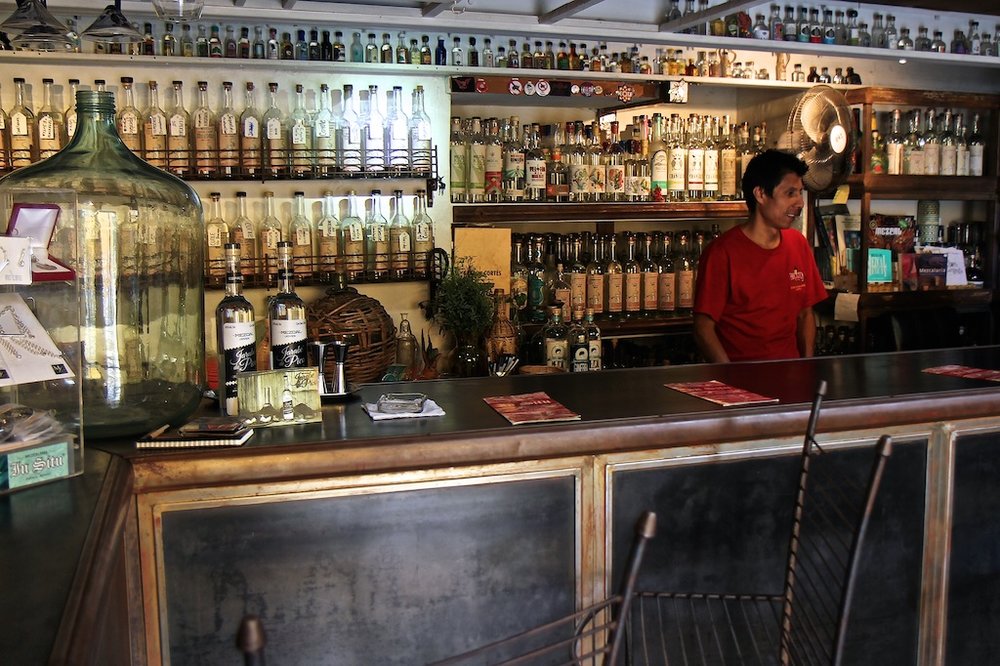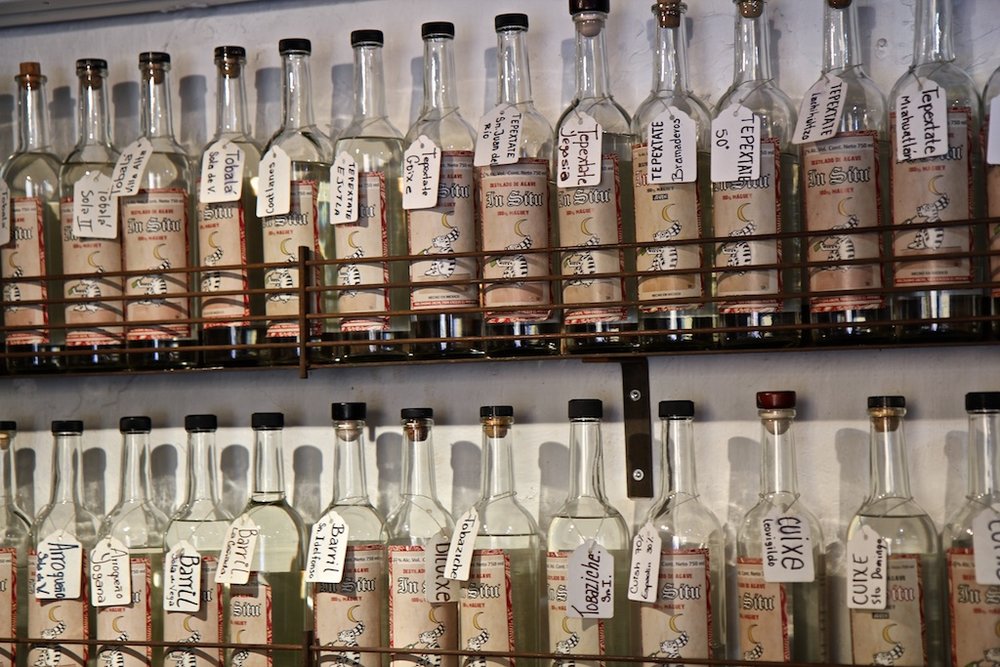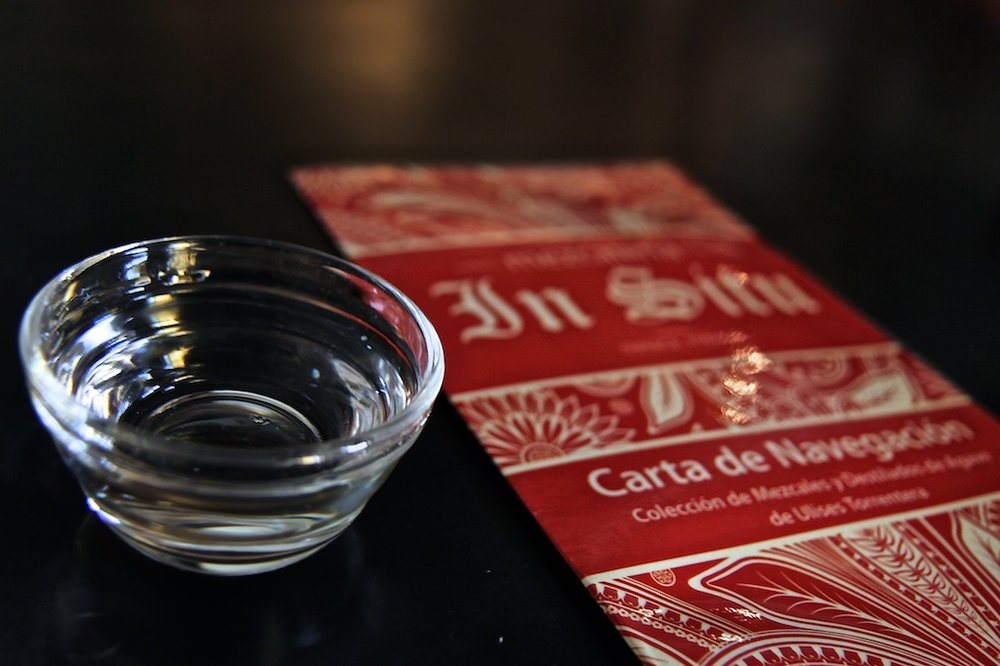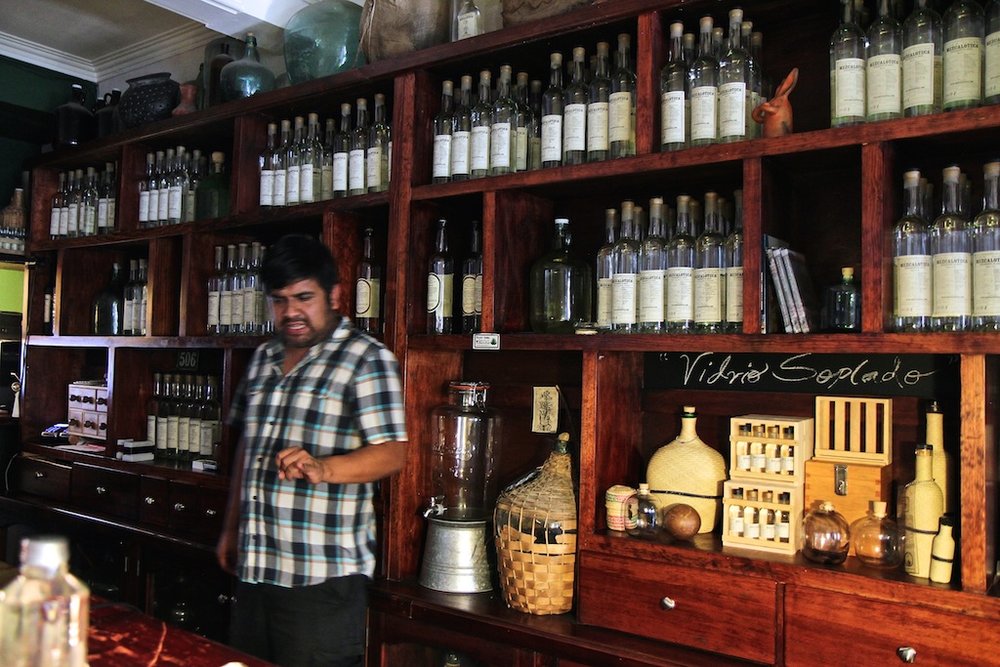Oaxaca 2015: Day 4 – Mezcalerias de Oaxaca

I'm not sure how many people are aware that Mexico passed a certification requirement for all products labeled as "mezcal" a few years back. It was a rather controversial decision, from what I understand, and the law stated that all producers wanting to classify their spirits as mezcal would have to keep strict records of production, declare all of their stocks, and present the government with consistant lab analysis to ensure the standard of quality. It all sounds pretty simple and straightforward to those familiar with the basic responsibilities of alcohol production, but imagine you're one of these remote village distillers, way out in the mountains, without running water, let alone access to a professional lab. How in the hell are people who can barely read and write going to keep detailed records and do the math required to keep accurate stock counts? Where's the local lab in Santa Ana, a village two and a half hours away from the nearest highway? The idea seemed a bit discriminatory to some in the industry, but the requirement passed, and today—if you want to export your mezcal out of the country, or even sell it in Mexico as "mezcal"—you have to be certified. But that's where the local mezcalerias come in. Like the one pictured above, for example.

En Situ is one of numerous mezcalerias in Oaxaca that purchases what no longer counts as "mezcal" from these remote producers and pours them directly to discerning customers. It's basically like a giant bar that only serves "mezcal" (certified and uncertified) and it's one of the best avenues for country producers that either can't or won't comply to standard practices. You can specify which type of agave you want to try, and from which region, and it's all but given that En Situ has a bottle of it somewhere on their shelves. It's not just about complying to certification for some of these producers; it's about not wanting to change their tradition. For example, the new certification requires all mezcal to be double-distilled, but many producers have long diluted their spirits down to 45% with a bit of the head from the first distillate (a much more flavorful reducer than spring water). Since the heads are only once distilled, that practice is no longer allowed.

En Situ also has various types of drinking receptacles, along side a vast menu that also exists in print if you don't want to stare for an hour at overwhelming number of bottles and strain your eyes to read the tags hanging from them.

I spent most of today barhopping with Hector Vázquez, the former head of production for Danzantes before Karina took over. He's just as wonderful as she is, and he's just as knowledgeable (like I did with Karina, I'll have more to tell you about Hector later). Next on our list of mezcalerias was La Mezcaloteca, a very sophisticated speakeasy-type lounge run by a man named Marco Ochoa. He's very passionate—both about mezcal and education—and we talked for a good hour about the state of the industry and the potential for relaying our passion to consumers.

Marco also has his own private label for "mezcal" and does his best to support the more remote producers who no longer qualify as mezcaleros. Some of his selections were absolutely heartstopping. It's a must-visit spot for anyone visiting Oaxaca; mezcal fan or not.

Besides selling directly to the local mezcalerias, some remote village producers do have another option: the education of their youth. Part of what makes Danzantes (and many other larger distillers) so amazing is their commitment to the health and survival of their artisansal producers. This is Cirilo Hernandez, the son of distiller Don Hernandez who makes the San Baltazar expression for Alipus. With the support of Danzantes, Cirilo went to school and was eventually groomed to handle all of the complicated logistics concerning certification for his family's mezcal. He's incredibly sharp, has poignant ideas about the future of the business, and isn't afraid to speak his mind about changing the long-standing traditions in his village. It's because of his involvement, and therefore his education, that Danzantes is able to maintain the certification for the Baltazar brand and export it to us here in the states. Without him, his family could never comply with the procedures.
That's pretty cool.
-David Driscoll
